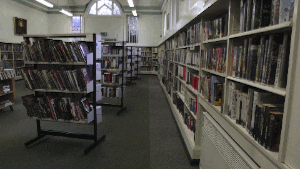So, as of this Tuesday our class turned in our annotated bibliographies, which are, if you didn’t know, really annoying to say the least. It’s not that the process is necessarily hard, but reading the articles that you find is a really big time suck. Especially if you can’t understand what the author is saying in a single read.
I spent a lot of time reading.
But besides from that, what was the most difficult part of creating the annotated bibliographies was connecting the articles together. Comparing them, contrasting them, how they aligned with one train of thought, how they aligned with another. It was all really messy.

Source: Awesomely Luvie
So what I did was I started to write all the articles down on a piece of paper. Then I sorted them into different categories: archival research, modern undergraduate research, and archival research for undergrads. And what I ended up with was an outline for how I wanted to write my essay, the plotline for the narrative that I was going to create. Thus, while annotating was annoying, mostly because of the time it took to complete the annotations, it also proved to be extremely helpful to me overall.








